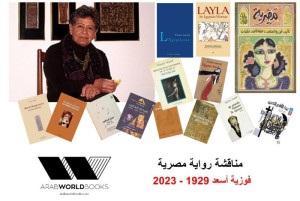In his book "The Development of Women's Awakening", Ibrahim Abduh recounts Qassem Amin reading the manuscript of "The Liberation of Women" to Mohamed Abduh, Saad Zaghloul and Lutfi El-Sayed in the summer of 1897, while they sojourned in Geneva. Already the book was whole-heartedly endorsed as the statement of a programme to which the enlightened members of the Egyptian intelligenstia subscribed. Below, a new translation of the concluding chapter of a book that wrought havoc on the established mores of the time
Translated by Peter Daniel
The reader will have discerned from the foregoing that the reformation of the status of women that we are advocating involves two courses of action. The first addresses popular customs, the treatment of women and education. The second entails an appeal to Islamic jurists to reexamine the Shari'a (Islamic Law) and the codes of law derived from the Shari'a in light of the needs and demands of the Islamic nation as pertains to women. In so doing, we ask them not to apply provisions solely on the basis of the judgment of a single imam, however well his essay in jurisprudence may have accorded with the welfare of his era. Rather we ask them to consider the ways in which our circumstances and affairs have changed and, should they find that the judgment of one imam does not permit for the preservation of the integrity of the Law, they will instead resort to the authority of another imam, whose doctrine fulfills the need, without deviating from the general strictures of the Shari'a.
As with all beneficial endeavors, the pursuit of the realisation of these two approaches requires knowledge and determination.
-1-
The pursuit of knowledge is the means for a nation to learn its needs. Through the pursuit of knowledge the members of a nation acquire an awareness of the virtues and flaws of their customs and morals, a process which entails an acute sensibility to one's circumstances, in light of which these matters remain under constant scrutiny.
It is folly, indeed one of the causes of hardship, that we conduct our vital affairs in accordance with customs of which the origins and the effects on our lives we ignore. We cling to these customs solely on the virtue that they were passed down to us by our ancestors, although this value, alone, should not give sufficient cause perpetuate them. Our interests, affairs and needs today do not necessarily coincide with those of our ancestors. This is a self-evident truth, which we should learn to accept.
Thus, we should adopt those customs and acquire such ethics as are consistent with our welfare, thereby ensuring that we are the masters of the motives behind our actions, as reason and Islam demand of us, rather than being slaves to the customs of our forefathers. We should not be like the man who, having discovered that his clothes are too tight, decides to starve himself and allows himself to grow ever more emaciated and frail in order to fit his clothes, instead of letting out his garments and tailoring them to fit his body.
There is no obstacle in our path to happiness more difficult to overcome than our tenacious and indiscriminate adherence to the customs of our ancestors. No, we should not discard our past in its entirety, but we should submit it to discerning and assiduous scrutiny so as to identify its advantages and detriments.
I am astounded at our attitude. Are we living for the past or for the future? Do we want to advance or to regress? The world is in constant flux, and we watch its continuous transformations with a dumfounded gaze, at a loss for what to do. So we retreat into the past in the hope of finding some refuge to offer us salvation, and we always come back empty handed.
This century we have seen an extraordinary event that I believe is unique in history. An entire nation relinquished its customs and ceremonies and repudiated its system of government and laws. It cast all this behind its back, severing the link with its past, apart from that which served the communal ties of its people. This nation then laid the foundations for a new structure to replace the old, and, within a half a century, it erected a beautiful edifice of the latest model and furnished it with all aspects of modernity. Having stirred from its slumber, it grew restless, sensing the energy in its body fed by the hot, strong, youthful blood coursing through its veins. This nation is Japan, which today ranks among the civilised nations, after having conquered, in a matter of days, the enormous hulk of China, whose death was rooted solely in its adulation of its past. Do we not find in this a word for the wise?
If our customs with regard to women were truly grounded in the Shari'a, our inclination to preserve them would be defensible. However, having demonstrated that all aspects of the reform we propose are in complete concordance with the text and spirit of the Shari'a, the only excuse we have left to cling to our customs is that they have been hallowed by the passage of time. Meanwhile, we have continued to neglect our welfare and the sound arrangement of our affairs.
Some readers may imagine that the writings of the jurists ordaining that women should not reveal their faces or commingle with men in order to obviate temptation are immutable religious strictures. To their objection we answer that most of the strictures of the Shari'a prescribe general prerequisites for virtuous customs and noble morals and entrust the definition of the particulars to those authorised to exercise their discretion in accordance with the discipline of jurisprudence. This was the manner in which law was formulated following the death of the Prophet among his companions and followers.
When the territory of Islam expanded and Muslims came into more frequent contact with other peoples and nations, there arose needs and exigencies that demanded new regulations and legislation. In response to these demands, authorised jurists derived from the general tenets of the Shari'a those legislative provisions that best suited their realities. Towards this end they subjected the entire compilation of strictures from the Qur'an and Sunna to rigorous exegesis in light of which they deduced laws and regulations commensurate with their circumstances, locales and times. In so doing they introduced no new tenets nor altered the essence of the religion in any way. Rather, their exercise of jurisprudence was confined to a consideration of the minutiae with constant reference to the whole as set out in the Qur'an and Sunna.
Have we not seen that the Qur'an did not elucidate the most important religious duties, such as the specific times, formulas and postures for prayer, the set amounts of alms taxes, or the rituals of the pilgrimage. It was the Sunna (the sayings and doings of the Prophet) that prescribed all these provisions, which were later elaborated upon and systematised by Islamic jurists.
This is the manner in which our the body of Islamic Law was composed: from elaborations all derived from a single origin. The Shari'a established the general precepts and broad contours. If it had determined the particulars of the provisions it could never have served as a law applicable to every time and every nation.
These general precepts which define untransgressable boundaries of our actions in accordance with the Qur'an and the true Sunna are immutable. However, the regulations pertaining to our customs and forms of interaction can be changed in accordance with the times and circumstance, as long as such changes do not breach any of the fundamental precepts of Shari'a.. Exposing the head, for example, is viewed as repugnant in oriental countries because it has been generally considered an affront against chivalric virtues and, thus, an infringement of probity. However, in western countries, exposing the head is not repugnant and is, therefore, not considered offensive. The provisions of law should reflect this variance.
The admissibility of oral testimony to certify legal actions was not intended to qualify the individual witnesses, but rather it addressed the need to corroborate such actions in an agreed upon manner, at a time when no other alternative was feasible. However, once people grew accustomed to conducting their transactions through writing, the law changed accordingly and shifted to the admissibility of written documents. Similarly, if in one era it was deemed appropriate for women to cover their face in the presence of men in order to forestall temptation while, simultaneously, the exigencies of life did not demand that women reveal their face, that should not preclude that this preference should shift to its antithesis in another era. For the provisions of law to vary in accordance with varying customs and interests does not impugn the Shari'a, so long as the provisions governing particularities are grounded in its fundamental tenets and essential spirit.
Thus, in our food, dress, drink and all other concerns of our public and private life, we have the right to choose that which best suits ourselves and our interests, on the condition that we do not transgress the general boundaries described above.
To oblige us to conform with our forefathers and to restrict ourselves to the confines they established for themselves is to sentence the Islamic nation to ossification. It is to fetter all talents and energies against engaging in any action that could sustain it, defend its existence and advance it towards the realisation of our happiness. Indeed, it is perhaps to sentence it to extinction.
-2-
Determination is the drive to compel the will to act towards every good to which knowledge and perception have guided us and to compel the will to avert every evil which inquiry and investigation have exposed. Determination is the noblest of mankind's powers and the most influential force upon his actions. Education, refinement, intelligence, noble intentions and good instincts are worthless in one who has no determination. Consequently, lack of will is the greatest human flaw. We find many people in our country who come up with a good idea or course of action, but are unable to summon within themselves sufficient incentive to promote the idea or put the course of action into effect. Once they learn that certain people disagree with them all will vanishes and they drop the idea. And, should they discover that their idea could bring them harm of some sort, you find them running in the opposite direction.
If there is any hope for the success of the reforms we consider appropriate for us, it resides in the man who is driven to know, strives to know and, eventually, knows in fact what his country needs. It resides in the ideal man who has the determination that spurs him to work, based on this knowledge, towards securing that which is advantageous for his country and repelling that which is prejudicial, employing those means that inherently lead to the desired result, however long it takes.
To this consummate man we propose a course of action in the matter that concerns us. But, at the same time, may he be warned that to take the first step is always the most difficult, because the entire thrust of criticism is inevitably directed at those who take the initiative in any matter of consequence. It is rare to find an individual who can find within himself sufficient strength to withstand the onslaught of public criticism.
I believe that the best means to implement the ideas discussed in this book is to form a society consisting of fathers who wish to educate their daughters in the manner that we have described. The chairman of this society shall be an Egyptian notable (I do not think that the Egyptian upper classes are lacking suitable candidates), and it shall have two aims. The first is to cooperate towards raising girls in accordance with the new principles [discussed in this book]. The second is to petition the government to issue legislation that guarantees the rights of women, with the sole restriction being that such legislation does not transgress the general precepts of Shari'a.. Thus, the legislator is asked not to restrict himself to a single school of Islamic jurisprudence, but to select from each doctrine those provisions that best conform with the needs and circumstances of our times, as occurred in the drafting of the Ottoman majallah and in our country repeatedly with regard to issues pertaining to the religious courts.
One advantage of creating such a society is that the thrust of censure can be shared evenly by all its members, thereby alleviating its impact on the individual, rendering it easier to withstand and obviating its chances to sap the determination to proceed. No individual can match the defensive capacity of a group, which is why collective action is the true and indispensable power behind any success.
When our government develops an interest in a small matter, such as shuf'a (the right of intercession), it appoints a legal committee to study the various doctrines and to compile the appropriate provisions. Simultaneously, we find that many Egyptians are eager to join many associations, such as the Humane Society and Horticultural Society, and are unstinting in the time and money they devote to those causes they consider valuable. Finally, newspapers are instrumental in disseminating among the diverse classes of society all manner of information that contributes to their education and refinement. Now is the time for the government, leaders of society and masters of the pen to turn their minds to the conditions of the Egyptian woman. I personally can think of no issue more vital to the life of the nation, in more pressing need of their attention and more deserving of their ideas and opinions.
Qassim Amin: The Liberation of Women
Upcoming Events

Joseph Conrad's Heart of Darkness Discussion
April 27, 2024
Join us for a special discussion of Joseph Conrad&...

A writer, a vision, a journey: a conversation with Francis Boyle
February 24, 2024
This event took place on 24 February 2024 Yo...

Discussion of Fawzia Assaad’s An Egyptian Woman
November 25, 2023
In celebration of the life and outstanding achieve...

Toni Morrison's The Bluest Eye, A Presentation and Discussion
October 28, 2023
This presentation and discussion of Toni Morrison&...
